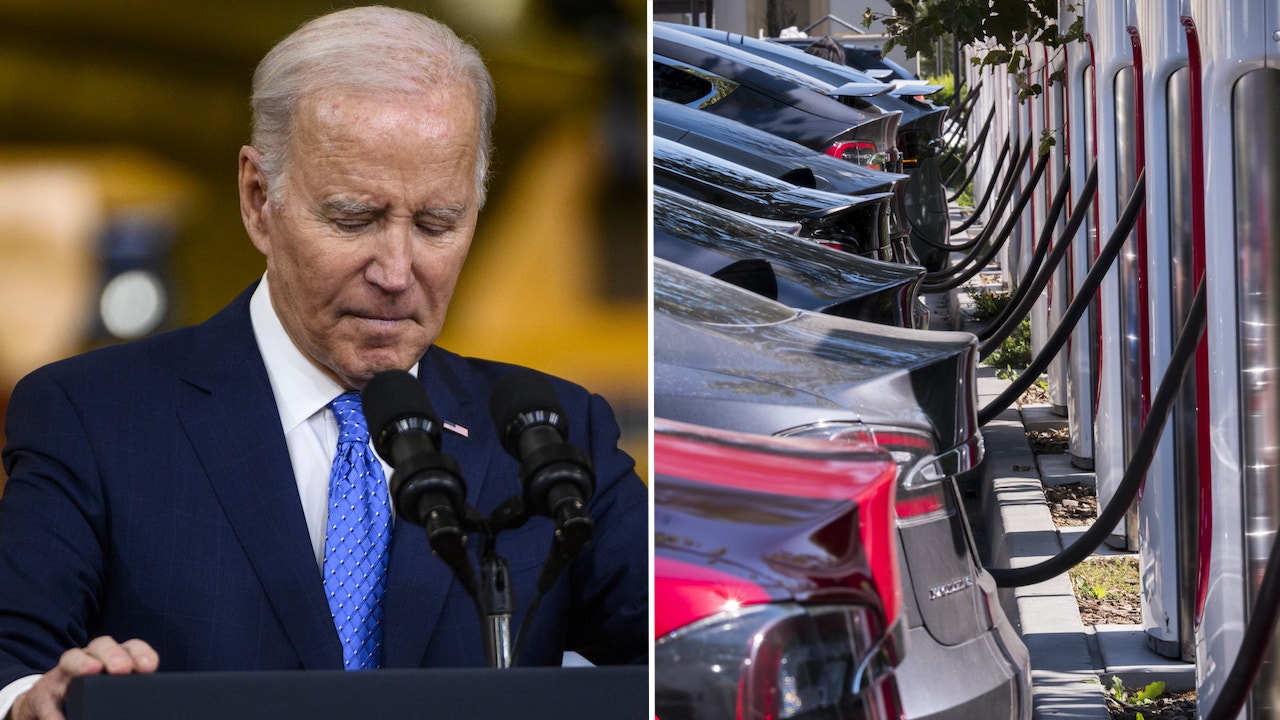Navigating The Chinese Market: The Struggles Faced By BMW, Porsche, And Other Automakers

Table of Contents
Intense Domestic Competition
The Chinese automotive landscape is rapidly evolving, dominated by a surge in domestically produced vehicles. The rise of powerful Chinese brands like BYD, NIO, and Xpeng is reshaping the market, forcing international players to adapt or risk being left behind.
- Competitive Advantages of Chinese Brands: Domestic manufacturers often leverage lower production costs, government subsidies, and a deep understanding of local consumer preferences to offer compelling alternatives at competitive price points. BYD, for instance, has successfully integrated electric vehicle technology, while NIO and Xpeng are leading the charge in premium electric SUVs and sedans.
- Government Support: The Chinese government actively supports the growth of its domestic auto industry through various incentives, including substantial subsidies for electric vehicles and preferential treatment in government procurement. This creates a significant advantage for domestic brands, putting pressure on foreign competitors.
- Price and Feature Competition: Foreign automakers often struggle to match the price-to-feature ratio offered by Chinese competitors. This necessitates a strategic shift towards offering unique selling propositions beyond price, such as superior brand prestige or advanced technologies that resonate with affluent Chinese consumers.
Regulatory Hurdles and Bureaucracy
Navigating the regulatory landscape in China is a significant challenge for foreign automakers. Complex import tariffs, stringent licensing requirements, and intricate bureaucratic processes add considerable complexity and cost.
- Import Tariffs and Taxes: High import tariffs increase the cost of importing vehicles and components, impacting profitability. Foreign automakers often need to establish local manufacturing facilities to mitigate these costs.
- Stringent Emission and Safety Standards: China's increasingly stringent emission standards and safety regulations require substantial investment in research and development to comply with local requirements. Failure to meet these standards can result in significant penalties and market access limitations.
- Distribution Network Establishment: Setting up a robust and efficient distribution network, including dealerships and after-sales service centers, requires navigating complex licensing processes and bureaucratic hurdles. This can be a significant investment for international automakers.
Understanding Consumer Preferences and Cultural Nuances
Understanding the unique preferences and expectations of Chinese consumers is crucial for success. The market is not homogenous; it's segmented by demographics, income levels, and evolving tastes.
- Growth of EVs and NEVs: The demand for electric vehicles (EVs) and New Energy Vehicles (NEVs) is booming in China, driven by government incentives and growing environmental awareness. Foreign automakers must adapt their product portfolios to meet this demand.
- Digital Marketing and Online Sales: Chinese consumers are digitally savvy, with a strong preference for online shopping and digital marketing channels. Effective digital strategies are essential for reaching target audiences.
- Social Media and Brand Reputation: Social media plays a vital role in shaping brand perception and influencing purchasing decisions. Managing online reputation and engaging effectively on social media platforms is crucial for building trust and brand loyalty.
Supply Chain Disruptions and Logistics
Managing supply chains and logistics in China presents significant challenges, exacerbated by geopolitical factors and the complexities of the domestic market.
- Geopolitical Factors and Trade Tensions: Geopolitical uncertainties and trade tensions can disrupt supply chains, impacting the timely delivery of components and finished vehicles.
- Local Sourcing: Sourcing components and materials locally is often necessary to mitigate supply chain risks and reduce costs, but this requires establishing relationships with local suppliers and navigating potential quality control issues.
- Transportation and Distribution: Managing efficient transportation and distribution networks within China's vast and diverse geography presents logistical challenges requiring careful planning and optimization.
Intellectual Property Protection Concerns
Protecting intellectual property rights in China is a significant concern for foreign automakers. Instances of intellectual property theft and counterfeiting pose a threat to innovation and profitability.
- Intellectual Property Theft: Counterfeiting and intellectual property theft are persistent issues, requiring robust legal protection and proactive measures to mitigate risks.
- Legal Protection Strategies: Foreign automakers need to implement strong legal strategies to protect their intellectual property, including patents, trademarks, and designs. This might involve registering intellectual property in China and collaborating with local legal experts.
- Government Initiatives: While the Chinese government has implemented initiatives to improve intellectual property protection, enforcement remains a challenge, requiring ongoing vigilance from foreign automakers.
Conclusion
Successfully navigating the Chinese market requires a deep understanding of its unique dynamics. From intense domestic competition and complex regulatory hurdles to the nuances of consumer preferences, supply chain management, and intellectual property protection, the challenges are substantial. However, the potential rewards are equally significant. To succeed, foreign automakers must develop comprehensive strategies that address these challenges, leveraging local partnerships, investing in R&D, and adapting their products and marketing approaches to resonate with Chinese consumers. Further research into successful strategies for navigating the Chinese market is crucial, utilizing resources like industry reports and consulting firms specializing in the Chinese automotive sector. Careful planning and a nuanced understanding are essential before entering this dynamic and complex market. Only with a well-defined strategy can automakers hope to thrive in the competitive landscape of navigating the Chinese market.

Featured Posts
-
 Ev Mandate Opposition Intensifies Car Dealerships Push Back
May 10, 2025
Ev Mandate Opposition Intensifies Car Dealerships Push Back
May 10, 2025 -
 Violacion De Derechos Universitaria Transgenero Arrestada Por Acceso A Bano Femenino
May 10, 2025
Violacion De Derechos Universitaria Transgenero Arrestada Por Acceso A Bano Femenino
May 10, 2025 -
 Leon Draisaitl Injury Oilers Leading Scorer Leaves Game
May 10, 2025
Leon Draisaitl Injury Oilers Leading Scorer Leaves Game
May 10, 2025 -
 Predstoyasch Rimeyk Na Stivn King Ot Netflix
May 10, 2025
Predstoyasch Rimeyk Na Stivn King Ot Netflix
May 10, 2025 -
 Trump Uk Trade Agreement Key Points And Implications
May 10, 2025
Trump Uk Trade Agreement Key Points And Implications
May 10, 2025
